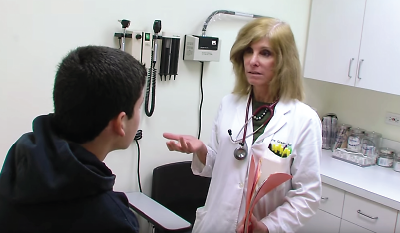Nonprofit Matches Volunteer Physicians With Communities in Need
Abstract
The Maven Project aims to leverage the strength of medical alumni associations to provide health care services where they are needed—but all physicians are welcome to volunteer.
As the lack of access to health care continues to affect many communities in the United States, especially those in in disadvantaged or rural areas, gynecologist Laurie Green, M.D., believes that the large body of retired or semi-retired physicians in this country can provide much-needed help.

Laurie Green, M.D., founded the MAVEN Project as a means to leverage the reach of medical alumni associations to find retired physicians willing to volunteer using telehealth technology.
That belief led Green, a managing partner at Pacific Women’s Obstetrics & Gynecology Medical Group in San Francisco, to launch the Medical Alumni Volunteer Expert Network, or MAVEN Project.
The MAVEN Project seeks to leverage the networking power of medical school alumni groups—which Green understands firsthand as a former president of the Harvard Medical School Alumni Association—to recruit retired physicians or those downsizing their practices to volunteer their services via telemedicine to community clinics or other facilities that need medical expertise.
As Green described it, MAVEN is like a medical matchmaking service. The MAVEN staff align each volunteer with a clinic based on the volunteer’s area of expertise and availability. MAVEN also handles all the administrative details, such as working out any issues with cross-state licensure or malpractice insurance. They also provide the telemedicine equipment and ensure that it is compliant with patient protection laws.
Both primary care physicians and specialists are being sought, and while retired professionals are the main targets of recruitment, active physicians are also welcome. To help encourage enrollment, MAVEN has flexible guidelines on time commitment, requesting that volunteers provide a minimum of four hours of service a month for at least six months.

Volunteers have a range of options in how they can assist. Specialty physicians who are willing to provide remote patient consultations or evaluations are, of course, valuable, said Green. “However, volunteers can also present educational talks to community physicians or work with colleagues on case discussions in a lunch and learn format.”
As Green told Psychiatric News, the MAVEN Project has been progressing well in its recruitment efforts since it was founded in 2014; it is now involved in pilot projects with four clinical partners (two centers each in Massachusetts and California), and MAVEN volunteers have completed more than 350 remote patient visits. However, physician recruitment has not been equal across the specialties, and Green said that there is an urgent need for more psychiatrist involvement.
It is not that surprising that psychiatrist recruitment has been difficult, said Larry Schmitt, M.D., a child and adolescent psychiatrist who retired from UC San Diego Health in 2005.
“This country is short on psychiatrists in general, and child psychiatrists, in particular,” he told Psychiatric News. This shortage, coupled with the fact that psychiatry practice is less physically demanding than some other medical specialties translates to psychiatrists’ often staying active and with busy practices longer in life.
However, mental health care is especially needed in these underserved communities, and Schmitt, who began volunteering with MAVEN last year, thinks psychiatrists with even limited time should consider opportunities like these.
“I have been struck at how apparently effective I have been with my limited services,” said Schmitt, who has been providing about two patient consultations a week on average for clinics in California. “And my wife says I sound 10 years younger.”
Green hopes more psychiatrists will follow Schmitt’s footsteps, as the need for quality mental health care is only expected to grow in the coming years.
“When MAVEN first started, the goal was to help fill the gaps that have arisen given the millions of new people insured under the Affordable Care Act,” she said. “Many of these new enrollees are able to visit only their community clinic or a hospital, and we thought that remote specialist care would hit that ‘sweet spot’ between the two, providing the comfort of a local clinic with the services of a hospital.”
Following the 2016 election, Green and her team are also keeping a close eye on how funding for Medicaid and other safety-net programs might be impacted. They are poised to tackle the challenges—as well as the opportunities—that could result. ■
More information about the MAVEN Project, including how to volunteer or request a medical need for a clinic, can be accessed here. Physicians interested in volunteering can also email [email protected].



